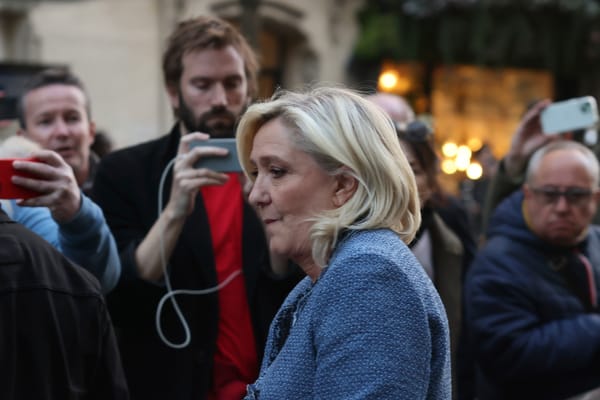Three times in the past year, a high court in the West has sought to disqualify a presidential frontrunner from competing in a national election—not for treason or murder, but for recondite offenses tangled in technicalities and presented with novel legal theories. Donald Trump (with his 34 felonies) and Romania’s Calin Georgescu (with last November’s suspicious TikTok campaign) were joined on Monday by nationalist candidate Marine Le Pen in France. Her National Rally, which has its roots in a more right-wing party founded by Le Pen’s father 50 years ago, has moderated its message since she took it over in 2011 and now gets more votes than any party in France. Le Pen has steadily improved in her three presidential campaigns and is blowing the competition away in the runup to the 2027 race. She draws 34 to 37 percent of the vote, depending on which poll you read, with the closest of her rivals barely scraping 20.
But on Monday, she received a prison sentence and a five-year ban on running for office from a three-judge tribunal. The decision relates to a scandal that began in 2004 in another jurisdiction (the parliament of the European Union) when her party had a different name. The case concerns détournement de fonds, which is routinely translated in English papers as “embezzlement,” though that is a strong word for what happened.
